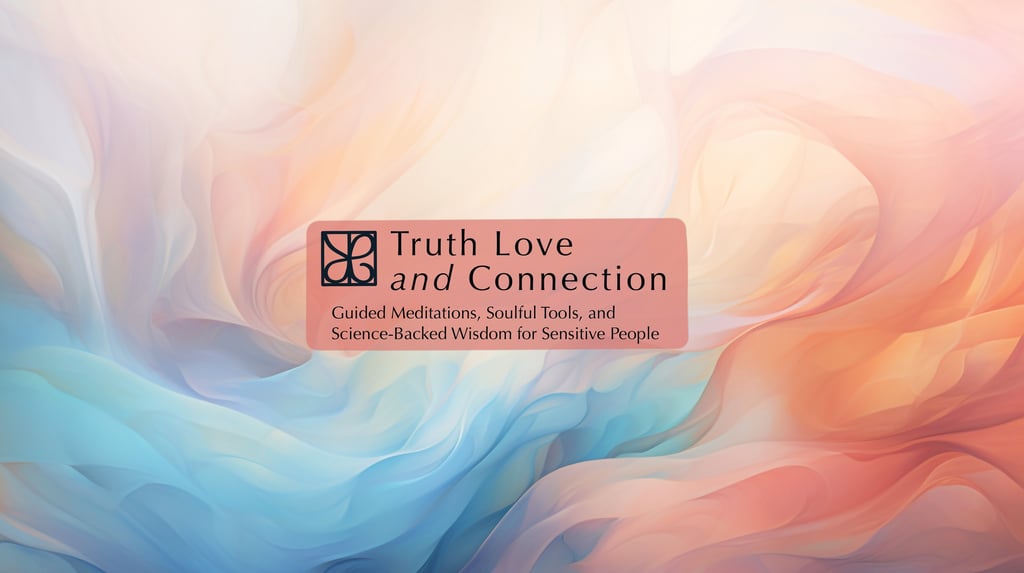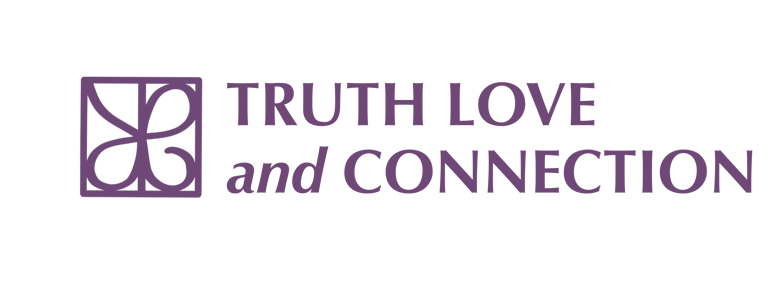
Mental Health, Consciousness, and Faith
In this thought-provoking reflection, Jess Hicks explores the deep interconnection between the body, mind, and spirit—and how modern culture has taught us to fragment ourselves in the name of survival. From the science of trauma and cellular feedback loops to the power of consciousness, faith, and inner awareness, this post is a call to wholeness. If you've ever felt confused by your own patterns, stuck in cycles you can't quite explain, or unsure how to integrate your emotional and spiritual life—this is for you. Learn why it’s not your fault and still your responsibility, and how self-awareness is the first step toward true healing and empowerment.
DEEP DIVES
Jessica Hicks, NP


Mental Health, Consciousness, and Faith
By Jessica Hicks, Truth Love and Connection
Our society is confused about a few fundamental truths. We've been taught to compartmentalize every aspect of life—the body, the mind, even our sense of self. We're conditioned to believe that systems are separate, that thoughts live in one compartment, emotions in another, and physical health somewhere else entirely.
Most people understand that the heart is connected to the lungs, the mouth to the stomach and intestines. We’ve heard of hormones and know blood flows through us, but few truly understand how deeply intertwined every system is. I often say: We are one big soup. And I mean it. The body is filled with feedback loops. It is in constant dialogue with itself and the environment, working tirelessly to maintain balance. Its primary mission is simple but profound: to keep you alive.
Inside each cell, little biochemical factories create energy and remove waste. Neural pathways, chemical signals, hormonal messengers—all form a web of constant communication. And yet, we still idolize the brain, placing it above all else.
We treat thoughts and emotions as if they’re intangible forces we can’t touch, yet somehow allow them to control us. In doing so, we forget that the mind is the body. It is not separate. Thoughts and emotions are as physiological as heartbeat and breath. They are part of the same whole.
We often credit our large brains for humanity's rise to dominance. Many even claim that we're superior to other animals. But biologically, we’re remarkably similar. What does seem to set us apart—if anything—is our consciousness. Although, as an animal lover, I believe many animals are sentient and wise in ways we don’t fully understand.
Still, consciousness is what gives us the capacity to reflect, to seek meaning, to believe.
Faith, for many, is a part of that consciousness. But unfortunately, faith is often rooted in disempowerment. We are born dependent on caregivers—whether they were capable or not—and this shapes the way we learn to trust others, ourselves, and the world. Many toxic relationship dynamics in adulthood trace back to this early reliance on unreliable sources of safety.
Some are raised with faith in a higher power. Others connect with the universe, their ancestors, or a broader spiritual presence. There are endless expressions of faith—and all are valid. What matters is how we use faith: to empower or disempower ourselves.
Personally, I believe that faith, paired with self-awareness and resilience, can be an incredible source of strength. We must learn to walk the middle path: not waiting to be saved, but also not believing we’re completely alone. Our lives are ours to live—and ours to align with the divine.
But that process starts with self-awareness.
You cannot change what you do not see.
Most people rarely pause to consider what consciousness truly is. It is the inner witness, the seat of the soul, the constant presence that has been with you whether you were five or fifty. And yet, even consciousness gets compartmentalized. Psychology gives us terms like subconscious, unconscious, and superconscious. We’re taught to identify internal critics, to recognize the voices of caregivers or society embedded in our psyche.
Spirituality offers its own language: higher self, soul, spirit, the voice of God, the Holy Spirit, spirit guides. However we frame it, we’re all trying to describe the same internal awareness—the ever-present voice within us. And yet, many people are afraid to acknowledge it, worried they’ll be judged as unstable or disordered.
Over and over, we split ourselves into parts.
We say: This is my body. This is my mind. This is my mood. This is my faith.
We put everything into little boxes, because that makes life feel more manageable. It feels safer.
This fragmentation is especially common in trauma. The brain has an extraordinary ability to block out what we’re not ready to process. I’ve worked with so many adults who carry trauma like an invisible weight—partially aware of it, but also profoundly disconnected. They can tell you when life changed, when a sense of safety disappeared, but they can’t connect the dots.
From the outside, it’s often clear. I can usually see the full picture. And through gentle, compassionate reflection, I help clients piece together what was hidden. For many, it’s shocking. The brain had done such a brilliant job of protecting them, they hadn’t fully realized what shaped them. But once that awareness lands, like falling dominoes, everything starts to make sense. Every choice, every coping mechanism, every pattern—it all becomes clear.
And that clarity brings freedom.
It also brings a new responsibility.
The traumas we inherited—large or small—were not our fault. But how we move forward is our responsibility. So many of us were taught to shrink ourselves, to prioritize others' emotional needs over our own, to suppress instead of express.
We grew up without stable foundations, without boundaries, without emotional regulation tools.
But that can change.
That’s where the real work begins.
We start by becoming aware of the internal script running in the background—the voice that informs who we believe we are and what we think is possible. That script can be rewritten. It was written by circumstance, not choice. But now, you get to choose.
So much of who we think we are is based on things we never had control over. But healing asks us to hold both truths:
It’s not your fault. But it is your responsibility.
You can recognize the pain of those who hurt you, and even have compassion for their wounds—and still choose not to be a victim to them anymore.
Healing is about holding multiple truths.
We are physical, emotional, spiritual beings with expansive consciousness and divine potential. We are capable of far more than we’ve been taught to believe.
It is my mission to help dissolve the limitations that keep us small.
The ones that come from trauma, shame, disconnection, and old programming.
What shaped you is not your fault.
But what you choose to do with your life—that is yours to claim.
Stop waiting for someone else to fix what they couldn’t even face in themselves.
Faith can pull you forward.
But you must show up for yourself.
I’ve climbed out of the dark myself.
And I know the way.
If you're ready to explore your own depths, to rediscover who you are beyond the boxes and beyond the pain, I invite you to join me.
✨ Get on the early signup list for our program, Navigating Sensitivity, launching July 7, 2025.
This work is sacred. This path is yours. Let’s walk it together.
Moved by this story?
Our audio library and Navigating Sensitivity Mastery Program were created to meet sensitive souls like you right where you are—with compassion, clarity, and tools that go beyond words. If you’re craving grounded transformation, emotional safety, and meaningful insight, you’ll feel right at home here.
Connection
Healing sensitive souls through science and spirituality.
Community
Support
info@truthloveconnection.com
© 2025. All rights reserved.
Website, Product and Content Disclaimer: The information provided is for educational and personal development purposes only. It is not a substitute for medical, psychological, or professional advice. I am a licensed Nurse Practitioner, but I am not acting in that capacity in this context.
